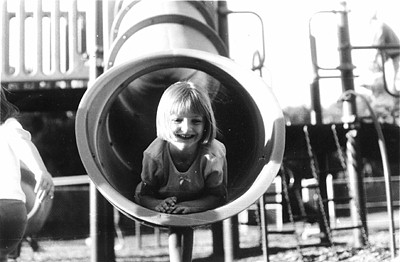All Nonfiction
- Bullying
- Books
- Academic
- Author Interviews
- Celebrity interviews
- College Articles
- College Essays
- Educator of the Year
- Heroes
- Interviews
- Memoir
- Personal Experience
- Sports
- Travel & Culture
All Opinions
- Bullying
- Current Events / Politics
- Discrimination
- Drugs / Alcohol / Smoking
- Entertainment / Celebrities
- Environment
- Love / Relationships
- Movies / Music / TV
- Pop Culture / Trends
- School / College
- Social Issues / Civics
- Spirituality / Religion
- Sports / Hobbies
All Hot Topics
- Bullying
- Community Service
- Environment
- Health
- Letters to the Editor
- Pride & Prejudice
- What Matters
- Back
Summer Guide
- Program Links
- Program Reviews
- Back
College Guide
- College Links
- College Reviews
- College Essays
- College Articles
- Back
The Past, the Present, and the Photo
As I unpack the last of my boxes in my new home in Colombia, I come across a dusty photo. It is blurry, brittle and stained, but the subject of the photo is clear: a young girl in an autumn dress, wearing a smile so big it’s contagious. Her tiny hands are grasping the railing behind her as she spins faster and faster on a wooden roundabout. Blonde curls are up in the air, delicate strands tangled by the dry wind of the Negev desert. She is laughing with the man behind the camera who had salt and pepper hair, laugh lines and strong hands. This was the man who witnessed firsthand the corruption in his country of birth, and the development of the country where he inevitably died, even though everyone loved him immensely. The girl in the picture is me. The man taking the picture is my grandfather.
My grandfather, Friedrich Hornung, was born in Germany in 1927. During his childhood, Fred’s grandfather raised him in a small town in the East region of Germany. One of my grandfather’s fondest memories was of his own grandfather protecting his pride when Fred wore shorts to the synagogue - deemed unacceptable by the caretaker. I think his own loving grandfather made him strive to be protective, generous, and caring to his grandchildren. Fred moved back to the city when anti-Semitism spread throughout the country with the rise of the Third Reich. He was moved to a ghetto when he was a teen, and the inhabitants were swiftly placed on trains to take them to concentration camps. Fred jumped out, and was free for a bit as the Hornungs hid their religious identity. However, when travelling to Eastern Europe, Fred was captured by Russians and put in prison - this was the first time he honestly thought he was going to die. Luckily, a Jewish clerk gave him a pass to get out of the hellhole ten months later. Fred took the opportunity to immigrate to the area of Palestine where he fought in the Independence War. In fact, he was photographed with a cast on in a newspaper and my great-grandfather framed the photo and article, thinking his son was injured by defending Israel. Little did the father know, Fred only achieved the cast by punching a fellow soldier in the face when the soldier talked down to other immigrants. In Israel, Fred built a new life for himself and raised his children; many years later, he helped raise me. He bore no physical scars of his horrific childhood, nor did he give way to any sort of bitterness.
When I look at this photo, the photo of the girl in the orange dress, I remember. I hear the flip-flop sound my tiny sandals made. I hear the dry hot air blow on my skin, so different from the air in Bogota. I smell one of the only patches of green grass in the small desert community. I feel my grandfathers hand - calloused, wrinkled, strong - in my own delicate ones as he leads me to our wooden playground. Now, the structure has grown old and broken with age, and has been replaced by a plastic, more colorful jungle gym. My orange dress would only reach my bellybutton. If I were to revisit the scene now, I would be alone. My grandfather was a good man, in every sense of the word, but being good does not prevent death by blood loss.

Similar Articles
JOIN THE DISCUSSION
This article has 0 comments.
